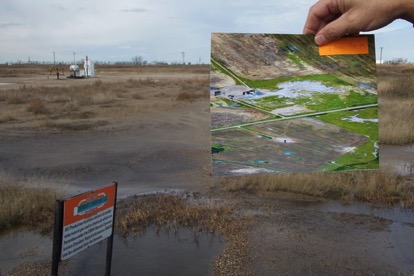As the famous thought experiment proposed by philosopher George Berkeley goes, “If a tree falls in a forest and no one is around to hear it, does it make a sound?” Berkeley’s thought experiment is intended to pose several philosophical questions. One of the questions is, “Can something exist without being perceived?”
Last January, a saltwater pipeline spill was discovered in Blacktail Creek in western North Dakota. After regulators investigated the spill, it was determined that almost 3 million gallons of saltwater contaminated the creek and the surrounding land. This December, it was discovered that the saltwater line responsible for the Blacktail Creek spill had been leaking for nearly 3 months before the spill was discovered. Saltwater is not ocean water; it is a mixture of chemicals, salts, and water, usually hundreds of times saltier than ocean water.
When applying Berkeley’s thought experiment to the Blacktail Creek spill, there are two ways to view it:
- The spill did occur despite it not being noticed. And, as a result, we need better protections to prevent similar spills in the future, or
- The spill occurred, but because it wasn’t noticed until 3 million gallons spilled, we should react to the spill as if it had happened suddenly.
View 1 says, “Yes the spill did exist prior to it being perceived, so we need to improve how we are able to perceive spills in the future to prevent spills from happening”.
View 2 says, “Spills occur; there is nothing we can do about it to improve how we perceive it when they may or may not occur, and, as a result, we should just react when a spill occurs.” View 2 is, for the most part, how western regulators operate with regard to saltwater lines.
In the West, saltwater pipelines in oil and gas fields are largely unregulated. Many states do not track where these pipelines are sited or how they are constructed. The lack of safeguards related to saltwater lines is the root cause of the spills like the one on Blacktail Creek. Until safeguards are put in place that include increased scrutiny of the siting, construction, and maintenance of saltwater lines, spills like Blacktail Creek will likely persist.
To prevent spills,
- Companies should notify regulators of the location of saltwater lines under construction.
- Install pressure gauges and automatic shutoff valves on lines to stem spills..
- Require regulators to routinely inspections saltwater lines.
With proper safeguards, we will never again have to answer the question, “If a saltwater pipeline leaks, and nobody sees it leak, did it ever leak at all?”
Read more oil and gas stories here.
Inside Energy photo

